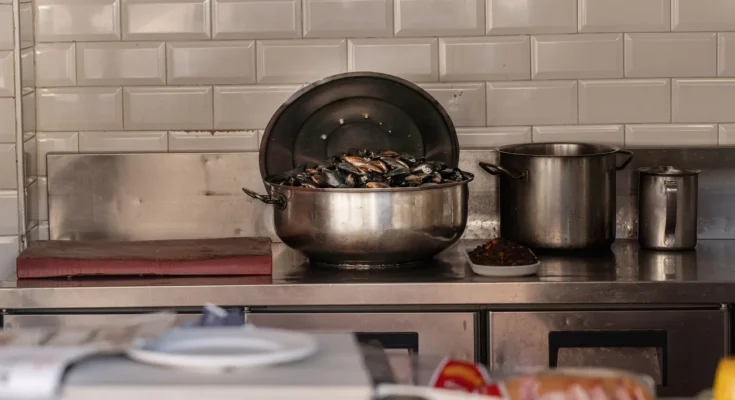Two children and their mother from Germany were visiting Istanbul died, the father is still being treated in the intensive care unit. The suspected cause of death is food poisoning. However, it is still unclear whether the food consumed actually causes death; investigation is ongoing. What to know about food poisoning.
What causes food poisoning?
According to the Federal Institute for Risk Assessment (BfR), food poisoning can occur if there are certain fungi or bacteria in food Food material reproduce, which produces toxins (called toxins). Additionally, fish and shellfish can contain marine biotoxins (called algal toxins) that cause food poisoning. These toxins can build up and build up in the tissues of shellfish and fish that eat the algae. “Some marine biotoxins are heat resistant and can cause various diseases in humans after consuming contaminated shellfish or fish,” the agency said.
Poisoning can also be caused by toxins found in plants and fungi. So-called glycoalkaloids can be found in green, sprouted, or damaged potatoes.
Who is this dangerous for?
According to Birgit Terjung, gastroenterology specialist and media spokesperson for the German Society for Gastroenterology, Digestive and Metabolic Diseases (DGVS), food infections can be dangerous. This applies especially to babies, children, pregnant women, elderly people, or people with weak immune systems.
“Depending on the poison, acute poisoning can cause serious health problems and, in some cases, be fatal,” says BfR. However, there are no exact figures regarding the frequency of acute food poisoning in Germany.
The most common symptoms of food poisoning are nausea, vomiting and diarrhea. However, according to DGVS, in most cases, the symptoms subside on their own after one to three days. Members of risk groups should seek medical attention if they suspect a food infection.
What precautions are there?
According to BfR, the most important action when you have diarrhea is to drink enough to compensate for fluid loss. If these symptoms last longer or are accompanied by blood, if you experience persistent vomiting or other more serious symptoms, you should seek medical attention or go to the hospital.
To prevent food poisoning caused by bacterial toxins, the Federal Institute recommends that perishable foods should always be sufficiently refrigerated. In addition, heated foods should be kept at at least 60 degrees or cooled quickly so that the temperature range between 7 and 60 degrees, where bacteria can grow and spores can germinate, can be crossed as quickly as possible.
In warm countries or countries where hygiene standards are not very high, tourists should be careful about what they eat, recommends Armin Valet of the Hamburg Consumer Center. The applicable principle: “Cook it, peel it or leave it alone”. Therefore, you should avoid animal foods that have not been heated completely or fruits and vegetables that cannot be peeled. It also makes sense to ask about a travel first aid kit before traveling or look at the Ministry of Foreign Affairs’ tips regarding the destination country.
© dpa-infocom, dpa:251115-930-296201/1



